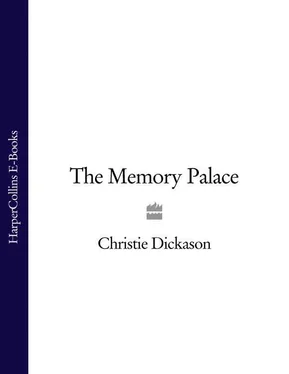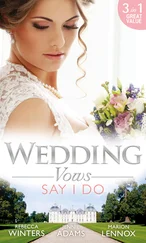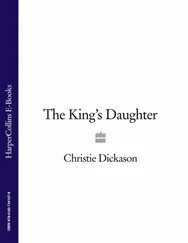‘But surely our own Doctor Bowler must marry us!’ Zeal protested. ‘If he’s willing.’
Sir Richard and Wentworth exchanged glances.
‘Doctor Gifford is the parish incumbent and a strong voice in the parish council,’ said Sir Richard. ‘Doctor Bowler merely your estate parson.’
‘All the more reason for him to bless an estate union.’ Zeal folded her arms. ‘I don’t like Gifford. He will be a weight dragging us down. Doesn’t the man know that God resides above? He should lift spirits, not always be tugging them down towards damnation.’
‘I can’t stomach the man,’ said Sir Richard. ‘But it would not be politic to offend either him or the parish vestry.’
‘Why not?’ she demanded.
Sir Richard and Wentworth exchanged another of those maddening male looks.
‘We must give no one any excuse to question the marriage,’ said Wentworth.
Zeal pursed her lips and wound a sleeve ribbon around her finger until the tip looked like a ripe cherry. She tried not to think of the darkness that Gifford would cast over the wedding. The whole venture was already as fragile as a bubble. ‘He must agree at least to marry us here at Hawkridge in our own chapel. I shall tell him so.’
‘Best leave that to me,’ said Sir Richard hastily. ‘I’ve an examination to make in Bedgebury tomorrow in any case.’
The lawyer cleared his throat politely to indicate that he was now ready.
The next Sunday, as negotiated on the night of the inquiry into Sir Harry’s death, Zeal took herself and her household to their monthly service in Bedgebury parish church. Sir Richard, of course, had not been part of the deal and waved them off with too much gusto for Zeal’s liking. Wentworth had never attended prayers and apparently did not mean to begin now.
He’s the blasted rudder after all, Zeal thought crossly as the little procession set off along the track downstream along the river to Bedgebury. But I don’t suppose Gifford is worried about his soul.
Doctor Bowler, however, trudged glumly at her side, still avoiding her eyes. ‘All that sermonizing,’ he said. ‘I won’t be comfortable. And with no hymns or Prayer Book! I shall feel as if I’m talking to a stranger, not my own God.’
‘I wish you were marrying us, not Doctor Gifford,’ said Zeal.
They both huffed and waved their hands to disperse a cloud of late gnats, which hovered in a sunny patch.
‘Will you want wedding music?’ Bowler enquired carefully as the shady tunnel closed round them again.
‘Oh, yes! But I feared to ask.’
‘Because Gifford will disapprove.’ He nodded in understanding of her difficulty.
‘Gifford can’t be allowed to order everything in the parish!’ She glanced at his long, hound’s face. He suffered so when he found himself at odds with anyone. ‘No, I didn’t ask because I know you don’t approve of the match.’
They crossed a little hunting bridge in silence. Then, as they joined the larger track that led from Far Beeches to Bedgebury, Doctor Bowler said, ‘I had thought I might compose an epithalamium.’
Zeal beamed. ‘Dear Doctor Bowler!’
‘But what of Doctor Gifford?’
‘Master Wentworth seems to know how to deal with him. I’m sure that if I say I want your epithalamium, we shall have it.’
They smiled at each other with the delicious relief of truce.
‘Would you also deck the chapel?’ she asked. ‘If Master Wentworth and I are to be united by that dispiriting Scot we can at least cheer ourselves with the sight of ivy and green boughs.’
‘And sheaves of ripe corn,’ said Bowler. ‘And pumpkins. All the bounty that autumnal Nature provides.’
‘Apples.’
‘Grapes and peaches.’ Bowler flushed with excitement. ‘It will give me great pleasure both to decorate and to compose a celebratory piece for you.’ He gazed up into the trees. ‘Seth must re-string his viol so we can march on the firm ground of his continuo.’ He hummed a few notes in an exploratory way. ‘…great pleasure.’ He seemed as relieved as she was at his relenting.
She had heard it said that Bowler failed as a clergyman because he always understood both sides of any question with equal conviction. He could not find it in himself ever to condemn. Anyone who wanted to know exactly where he or she stood in relationship to Heaven and Hell or whether to play shove ha’penny on Sunday, had to attend church in Bedgebury, where Doctor Gifford delighted in firm pronouncements, invited or otherwise.
She smiled sideways at her parson as they trudged onwards towards Bedgebury. He continued to frown and hum, waving his hands from time to time, even voicing a few notes.
How dare Doctor Gifford dismiss him as a clergyman? Though perhaps an over-forgiving shepherd for wayward sheep, Doctor Bowler gives us rich gifts of the spirit in return for his milk and eggs.
She glanced over her shoulder at the straggling procession behind them.
From among those walkers Bowler had formed a chapel choir of an excellence surprising in such a rural backwater. For this choir, he composed psalms and hymns exactly suited to their voices. From among those same estate residents, he also mustered and tutored a consort of instruments, which included his own fiddle, a double bass viol, a viola da gamba , several pipes, a tabor and the smith’s great drum. He and this crew played for church festivals and for dancing on secular feast days with equal fervour and delight. But Bowler’s unique gift was his voice.
It was high, but not falsetto, nor was it a simulacrum of a woman’s soprano, like the voice of an Italian castrato. Its piercing purity of tone suggested some other instrument than a human voice, an instrument not known on earth, the vibrating of a silver reed blown only in Heaven.
Bowler loved to sing as much as he disliked making judgements. For feverish children, who saw wolves and demons among the bed curtains, he stood diffidently in the sick chamber and sang light into the shadows and smiling faces onto the foot of the bed. He sang a small green grass snake into his pocket and a robin onto the corner of the pillow.
For the dying, he sang stars of light into dusty folds of hangings. He sang the smell of fresh pine and the sweetness of witch hazel blooms. He sang long-vanished faces around the bed. He sang clear still water. He sang rest.
For the others, he sang rising barn walls, candles, leaping flames, magic cups that were always full. Sweet meats and diamonds. Golden arrows for the hunter’s bow. God. He could sing warmth around the heart, lightness beneath the ribs, fizzing in the belly. He could lift the hair on your neck with the sound of hope.
For Zeal, Doctor Bowler’s music would bless her strange, uncomfortable marriage with a joy she saw nowhere else. She did not see that she had just declared war against an unreasoning enemy, with her little parson as both ally and cause.
Gifford nodded with gratification when he saw their party arrive in the Bedgebury parish church. Heads turned in the congregation. Some bent together to whisper. Elbows nudged ribs.
Zeal missed the pleasure of singing hymns and had difficulty suppressing yawns during Gifford’s long sermon on the spiritual perils of revolt. She found the undecorated stone walls of the parish church astonishingly plain for a house of God. Otherwise all seemed well enough, until they left.
Doctor Gifford stood in the porch bidding farewell to his sheep. As Zeal and Bowler stepped out into the sunlight, he gave the parson a letter.
‘But I am certain, madam, that you will wish to note the contents.’
Zeal knew instantly that she would not wish any such thing but, mindful of the caution voiced by Wentworth and Sir Richard, she bade the minister a civil farewell.
Читать дальше












